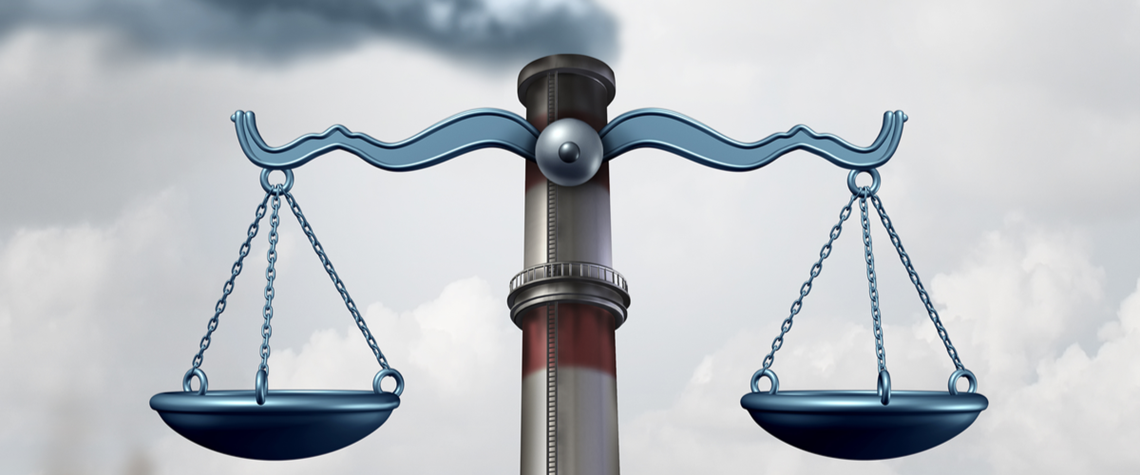There has been a dramatic rise in the number of climate change-related legal claims in recent years as a result of the increased sense of global urgency to tackle climate change.
Historically, climate change litigation largely involved claims for damages against large oil and gas companies, principally on the basis that these companies produce and distribute products that are directly related to greenhouse gas (GHG) emissions. However, these claims have struggled to succeed owing to the complexity of the energy sector, where a myriad of supply chains and consumer choices make it difficult for claimants to establish a direct causal link between the alleged harm and a specific company’s GHG emissions.
Consequently, claimants have sought to increase the scope of climate change litigation by bringing claims for relief other than damages, and based on alternative causes of action which do not require them to evidence the chain of causation between the defendant’s GHG emissions and the specific climate-related injury that is being alleged. One of the most significant trends in climate change litigation has been the emergence of rights-based claims, where claimants invoke their human rights as a means of holding defendants accountable for their climate change commitments.
Early claims of this nature targeted governments but, in light of the increasing success of these claims, claimants are now invoking the rights that have been established with respect to governments and seeking to apply them to corporates to hold them accountable for their global activities too.
In Europe, the renowned success of Dutch environmental non-profit the Urgenda Foundation’s claim against The Netherlands, which was originally brought before the District Court of The Hague in 2015, has been a trigger for other, wide-reaching, rights-based claims.
In this case, the Urgenda Foundation claimed that the Dutch government had failed to take sufficient action to reduce its carbon emissions, in violation of the government’s duty of care to its citizens under Articles 2 (Right to life) and 8 (Right to respect for private and family life) of the European Convention on Human Rights.
This was the first decision by any court in the world to order a nation to limit its GHG emissions for reasons other than statutory mandates. The case went to appeal twice, and the decision was ultimately confirmed by the Supreme Court in December 2019, which ordered the government to reduce its GHG emissions by at least 25pc (compared to 1990 levels) by end of 2020.
Following this landmark judgment, the governments of at least four other European countries have been held by their national courts to have failed to implement their climate commitments, in breach of human rights standards, including in Ireland, France, Germany and Belgium. A further action of this nature was filed against the UK prime minister in May 2021, and these claims show no sign of abating.
Corporates
Whilst most rights-based claims have, to date, been brought against governments, 2021 has also seen the first rights-based climate change-related decision against a private corporation. In May, a group of seven Dutch NGOs (Milieudefensie et al.) successfully managed to extend the principles established by the Urgenda decision against a private corporation.
Specifically, the District Court of The Hague found that Royal Dutch Shell (the UK-incorporated parent company of the Shell group with its headquarters in The Netherlands) had a duty of care under the European Convention on Human Rights to do more to reduce carbon emissions, and thus ordered the company to reduce CO₂ emissions by 45pc by 2030 compared with 2019 levels.
The Court also found that, not only does Shell have an obligation to reduce its own GHG emissions, but it also has a best efforts obligation to reduce the emissions of its suppliers and customers. This decision will require a significant organisational commitment from Shell and substantial engagement with all the companies in its global supply chain and business network, across all of the 70 countries in which the group operates.
This decision marks a critical turning point for global climate change litigation. For the first time, a climate change-related claim has successfully targeted the business of a corporation and its operations worldwide, drawing into focus corporate obligations to society more generally.
Since a rights-based claim has proven to be successful in compelling a private corporation to take concrete steps to reduce emissions, it is not just governments that may be targeted by such claims. Any company responsible for significant GHG emissions may next year and beyond face similar claims relating to their climate policies, as well as their wider obligations to society.
Moreover, in light of Cop26 and the updated Nationally Determined Contributions (or country pledges) submitted by the signatories to the Paris Agreement—which are due to be revisited again at Cop27 in Cairo 2022—climate change legislation and regulation is only set to increase. This will add further pressure on corporates, so it is more important than ever that all businesses carefully consider their climate strategies.
Mark Clarke is a partner and Katherine Daley is an associate at global law firm White & Case.








Comments